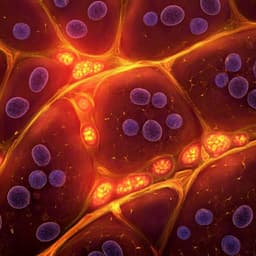
Medicine and Health
mRNA therapy restores euglycemia and prevents liver tumors in murine model of glycogen storage disease
J. Cao, M. Choi, et al.
This groundbreaking study conducted by a team of experts reveals a promising new therapy for Glycogen Storage Disease 1a (GSD1a), a rare metabolic disorder caused by glucose 6-phosphatase deficiency. By utilizing engineered mRNAs in lipid nanoparticles, they demonstrated significant efficacy and safety in a murine model, opening doors to potential treatment where none currently exists.
Playback language: English
Related Publications
Explore these studies to deepen your understanding of the subject.







